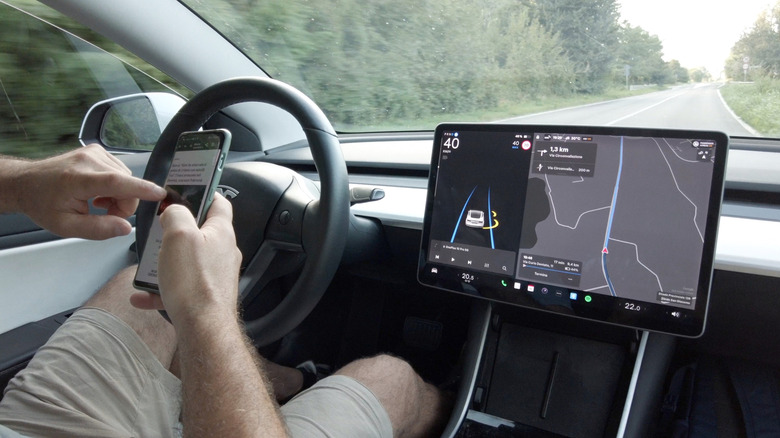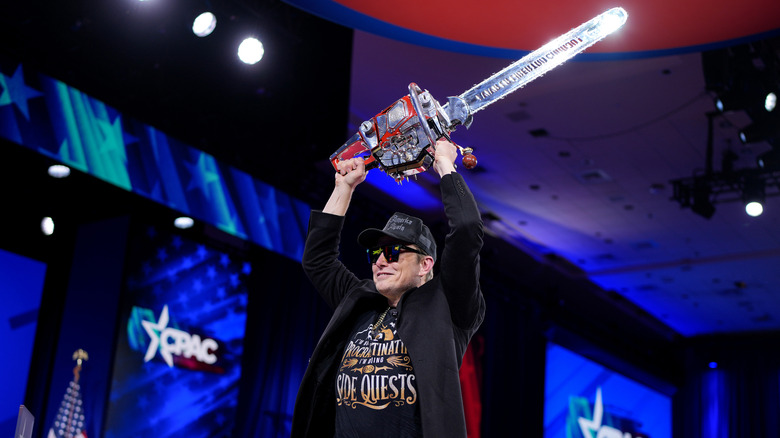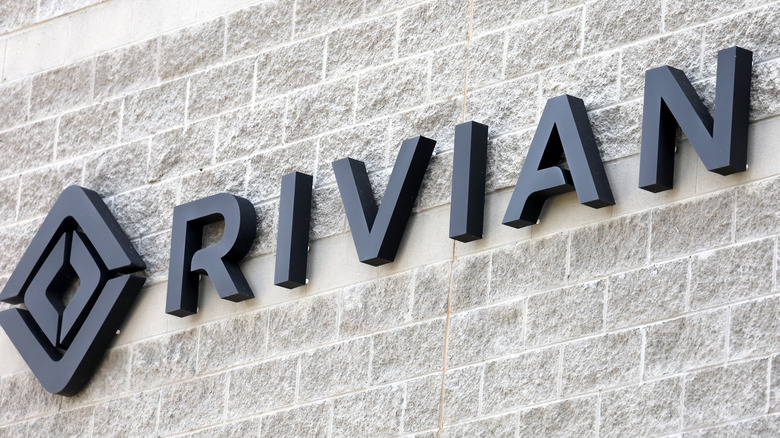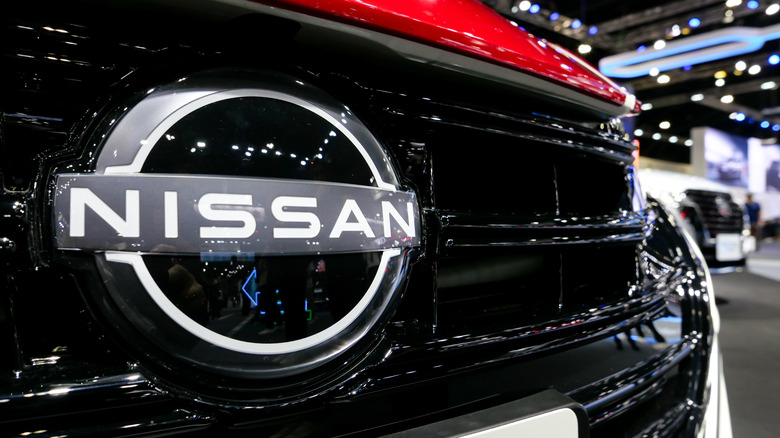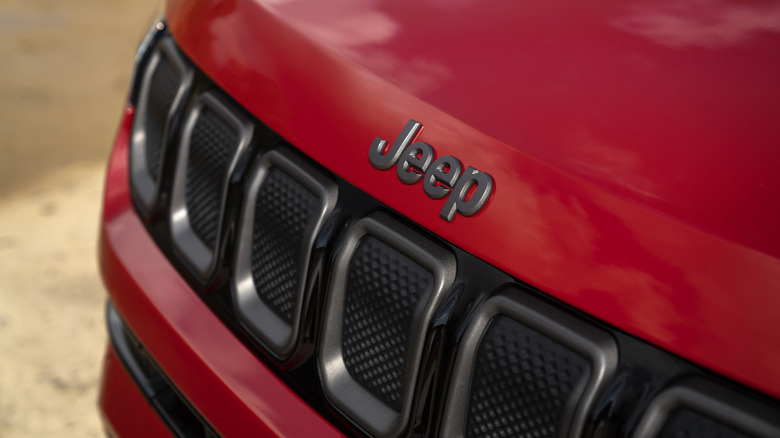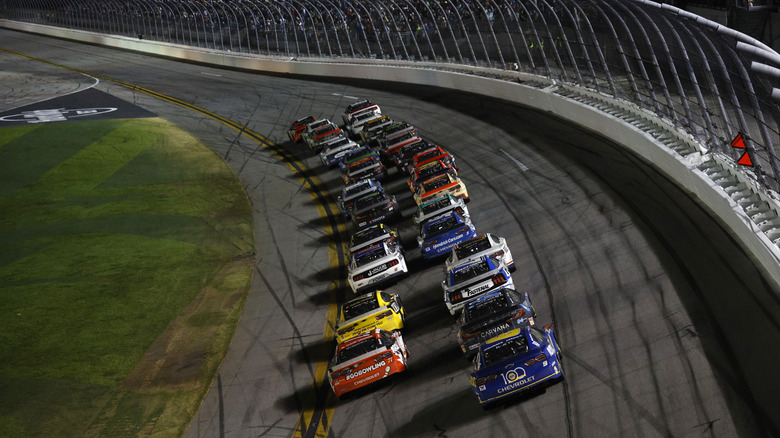Elon Musk Guts The NHTSA Department Responsible For Autonomous Vehicle Safety
Good morning! It's Friday, February 21, 2025, and this is The Morning Shift, your daily roundup of the top automotive headlines from around the world, in one place. This is where you'll find the most important stories that are shaping the way Americans drive and get around.
In this morning's roundup, find out how Elon Musk is going after yet another government department that holds his companies to account and see how the tables have turned at EV maker Rivian. We also find out which international brand Japan hopes will swoop in and save Nissan and see how uncertainty in the American auto industry is hitting Stellantis.
1st Gear: Elon Musk cuts more jobs overseeing his companies
Tesla boss Elon Musk first promised self-driving Teslas more than a decade ago and his latest target is to roll out a fleet of the company's autonomous robotaxis as soon as this summer. To do this, Tesla will have to overcome a few regulatory issues first, like the ongoing safety probes into its self-driving tech and the rules around mass production of autonomous cars. Small problems for a man like Musk, though, who can use his government influence to gut the very departments that hold his companies to account.
After it was revealed Thursday that Musk sent Space X engineers into the Federal Aviation Administration, it's now emerged that his Department of Government Efficiency has now slashed jobs at the National Highway Traffic Safety Administration, reports the Washington Post. Included in the cuts was a team dedicated to overseeing safety in autonomous vehicles, as the site explains:
"It was just very jarring to go from saving lives one day to being locked out of your computer the next," said one terminated employee, who spoke on the condition of anonymity to avoid hurting his prospects of finding a new job.
DOGE's slash-and-burn approach also eliminated three out of roughly seven people in a new office charged with overseeing the safety of autonomous vehicles, one person familiar with the cuts said. Fired workers said they do not believe they were targeted specifically because they are examining driverless cars, which remain a new and controversial technology. But one of them said the upshot is the same, with less scrutiny of robotic vehicles.
"If the question is, will this affect the federal government's ability to understand the safety case behind Tesla's vehicles, then yes, it will," said one terminated engineer. "The amount of people in the federal government who are able to understand this adequately is very small. Now it's almost nonexistent."
The cuts to the department focused on autonomous cars were part of a 10 percent reduction in staffing at NHTSA, the Post adds. The cuts amount to around 80 workers across the agency and also hit teams working on projects investigating crash test dummy technology and research into drunk driving.
The cuts will be "split roughly evenly" between a mix of buyouts and the firing of workers on probationary contracts. NHTSA isn't the only department to face cuts at the hand of Musk, who also terminated around 400 probationary employees at the Federal Aviation Administration last week. The cuts followed one of the deadliest periods in American aviation following three fatal crashes across the U.S.
2nd Gear: Rivian had an awful end to 2024
The last year was pretty tough for all kinds of people, as the price of everything rose, job cuts plagued almost every industry and the world's electric vehicle makers continued to lose millions of dollars. I know, heartbreaking isn't it.
Rivian was one of those automakers that struggled in 2024, and it just revealed that losses at the end of the year hit an eye-watering $744 million over the final three months of the year, reports Automotive News. The company's losses came as deliveries remained flat for the period:
Rivian Automotive reported a fourth-quarter net loss of $744 million on mostly flat sales but delivered on its forecast for a modest gross profit, the company said Feb. 20.
In the year-earlier period, Rivian reported a significantly larger net loss of $1.5 billion.
The automaker also said it expected to sell fewer vehicles this year compared with last year.
Despite the red ink, the electric vehicle maker reported a positive gross profit of $170 million, partly through regulatory credits that it sells to other automakers to help them meet emissions standards. The profit is a significant improvement from the company's gross loss of $606 million in the fourth quarter of 2023.
The losses at the end of the year mean that Rivian was $4.7 billion in the red over the course of 2024, despite delivering 51,579 cars. The mounting loss led the company to pursue an aggressive round of cost-cutting measures and it's hoping that a raft of new models can perk its sales up in the coming years.
Just this week the automaker rolled out a limited-edition of its R1S electric SUV and the company will launch its cheaper R2 model, which will be built on a new assembly line at the Rivian plant in Illinois.
3rd Gear: Japan wants Tesla to save Nissan
Japanese automaker Nissan is on the rocks: its sales are faltering, its lineup is aging and the company was slow on the uptick of green power. A merger with Honda was in the cards to try and save the brand earlier this year, but Nissan walked away from talks after it emerged the two companies wouldn't be viewed as equals.
Nissan reportedly still wants a partner to work with to future-proof the company, and now a pitch is reportedly being prepared to bring Tesla onboard as an investor in the brand, reports the Financial Times. A group that includes a former prime minister of Japan drew up proposals for Tesla to invest in Nissan, which the group says could benefit both parties:
A high-level Japanese group that includes a former prime minister has drawn up plans for Elon Musk's Tesla to invest in the struggling carmaker Nissan, following the collapse of its merger talks with rival Honda.
The new proposal, led by former Tesla board member Hiro Mizuno, is being supported by ex-premier Yoshihide Suga and his former aide Hiroto Izumi, according to three people with direct knowledge of the move. Several board members at Nissan are aware of the initiative.
The group is hopeful Tesla will become a strategic investor since they believe the world's largest pure electric-vehicle maker is keen to acquire Nissan's plants in the US, according to the people. The factories would help it boost domestic manufacturing in response to Donald Trump's tariff threats.
The future of Nissan's independence has been in doubt for around a year now, after iPhone maker Foxconn first approached Renault about potentially buying its stake in the Japanese brand. That hasn't materialized, but was soon followed by the talks of a merger with Honda.
Those talks fell through earlier this month and now Nissan is being eyed up by activist investors and other groups that believe they have what it takes to turn the company around.
4th Gear: 'Chaos and uncertainty' hits Stellantis in Canada
The back and forth around tariffs on vehicles and their components being brought into America is exhausting. First, Mexico was going to face 200 percent import duties, then 25 percent and then nothing. On top of that, Canada was staring down the barrel of import duties of its own, before it suddenly wasn't. Now, the uncertainty around vehicle manufacturing in North America is starting to hit home.
Stellantis has paused work on the next generation Jeep Compass at its assembly plant in Brampton, Ontario, reports Bloomberg. The plant is in the midst of a retooling program to prepare it for the production of electric and gas-powered Jeep models.
Stellantis paused preparations for the next-generation Jeep models at Brampton, which it says will allow it to "reassess its product strategy in North America," a spokesperson told Bloomberg. The move, understandably, did not go down well with union reps at the facility:
The "unexpected announcement" in Brampton is a matter of "grave concern," according to Unifor, the union representing auto workers at that facility. It raises doubt about the timeline of the retooling process, the union said.
"The chaos and uncertainty plaguing the North American auto industry, which is under the constant threat of tariffs and a dismantling of EV regulations from the US, are having real-time impacts on workers and corporate decisions," said Unifor President Lana Payne. "The threats are also dangerous to our economy and to Canadian jobs."
Unifor said the impact of a delayed start at Brampton would have spillover effects on local parts suppliers tied to vehicle production, including thousands of union and non-union workers.
Should the next-generation Compass go into production in Canada, it could fall foul to the 25 percent import tariff that president Donald Trump has proposed on imports from Canada as well as imports of foreign cars. If either of these taxes come into force, prices of the new model could rise in order to account for the increased duties.
Reverse: And they still don't know how to turn right
You did it, you made it through another week and finally hit Friday. Good job! Did you know this isn't just any old Friday, though, it also marks the anniversary of the foundation of Nascar. Isn't that neat?
The all-American race series was founded on this day back in 1948 as the National Association for Stock Car Racing. The series' founding was led by mechanic William "Bill" France Sr, who went on to become the sport's first president once it was created on February 21 1948. With France at the helm, the sport hosted its first official race in 1949 in front of 13,00 fans.
In the years since, Nascar has grown to become one of America's most watched sporting series, and now features a season that packs 36 races across the U.S. To find out more about the origins of Nascar, head here.
